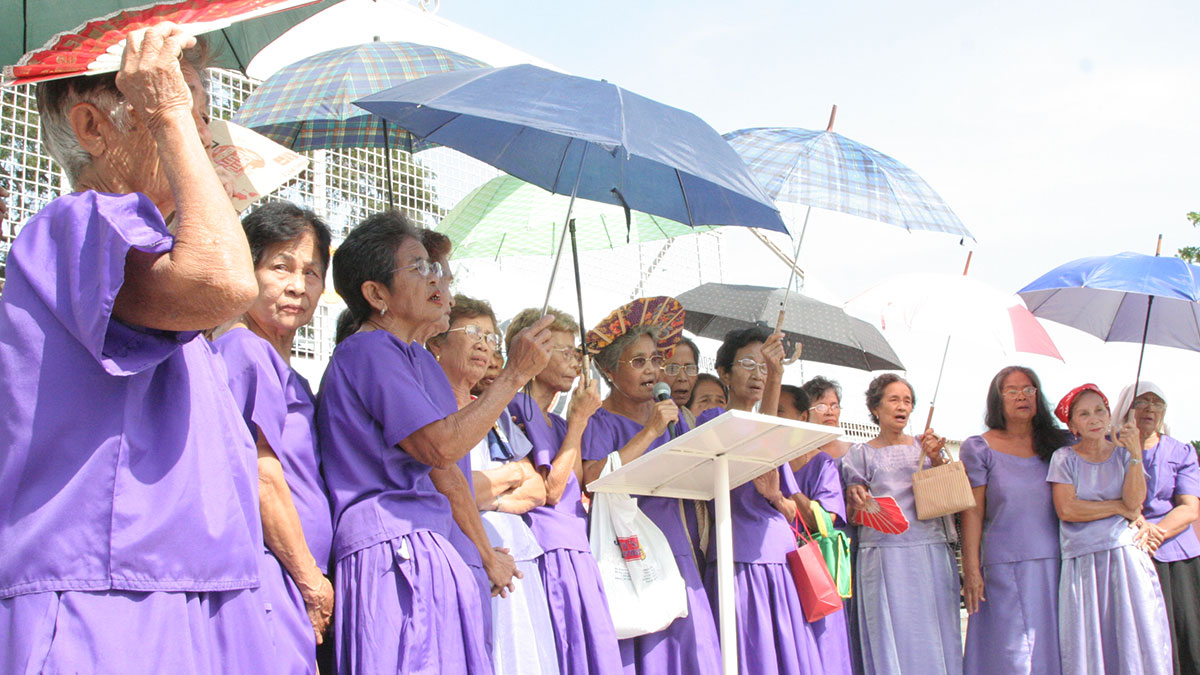
In this file photo taken in 2007, the Malaya Lolas counted around 70 from 96 women in 1996 when they first spoke of the sexual abuses by Japanese soldiers during World War II. This April, only 18 women are still alive, mostly bedridden by ailments and old age. TONETTE T. OREJAS/INQUIRER FILE PHOTO
MANILA, Philippines — The Department of Social Welfare and Development (DSWD) is working on including all surviving “Malaya Lolas” — women forced into sexual slavery by Japanese soldiers during World War II — in its social pension program for indigent seniors.
Social Welfare Assistant Secretary Elaine Fallarcuna noted that only 10 of the remaining 18 Malaya Lolas had been registered as beneficiaries while the rest were still under evaluation.
READ: Malaya Lolas slam gov’t ‘failure’ to meet UN ruling
“The remaining members were already assessed by our field Offices and we are in close coordination with the Kaisa-Ka sa Malaya Lolas every quarter,” Fallarcuna said in a Senate hearing on Tuesday. The women’s group Kaisa-Ka has been helping them seek reparation for the injustices they endured at the hands of Japanese soldiers.
READ: The disappearing ‘lolas’ of Mapanique
According to the DSWD official, they were able to reach out to 18 Malaya Lolas out of the initial 24 on the list.
“Rest assured, this second semester of 2024, they are already included in the social pension program,” Fallarcuna said.
Under the Social Pension for Indigent Senior Citizens program, seniors or those aged 60 and above who are suffering from a disability or illness and do not have a pension or stable source of income are entitled to P1,000 every month. The pension is given every six months or in two tranches annually to streamline the distribution.
A total of 96 Filipino women were reportedly used as “comfort women” by Japanese troops during WWII.
President Marcos ordered the agencies concerned last year to craft measures to “appropriately address” the grievances of Malaya Lolas, following a United Nations ruling that the Philippine government failed “to “provide reparation, social support, and recognition commensurate with the harm suffered.”